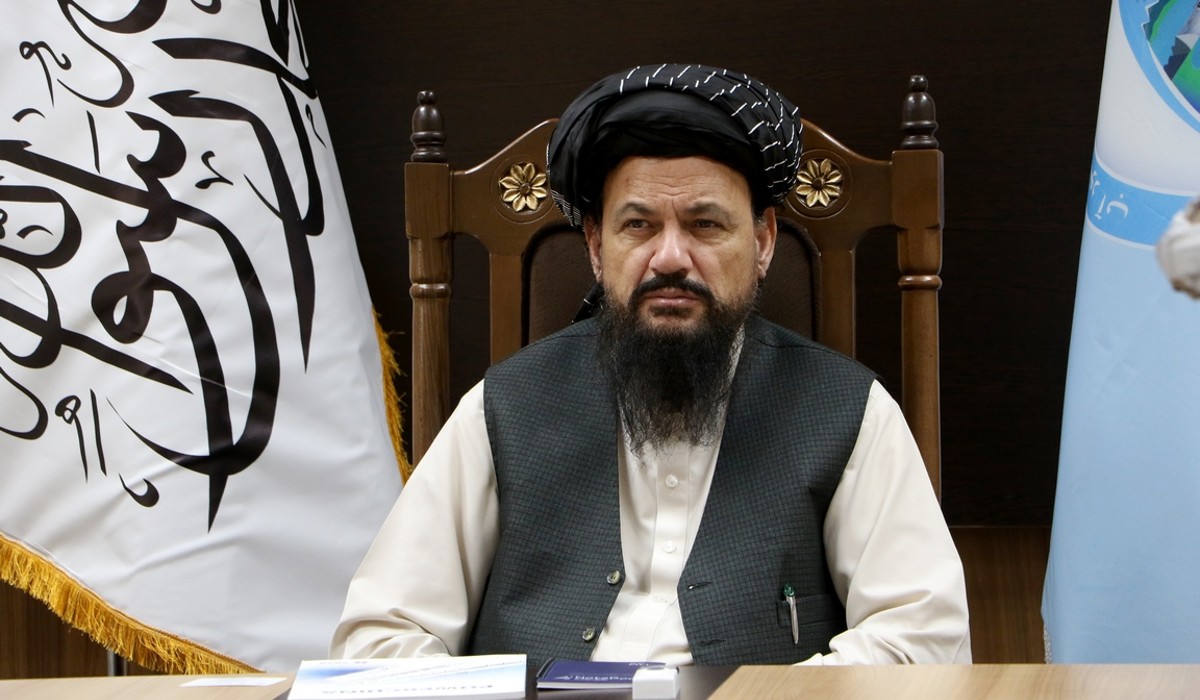Under a 2011 United Nations Security Council (UNSC) resolution, as many as 135 Taliban leaders and organizations affiliated with the group are subject to sanctions including travel bans.
The UNSC temporarily lifted the travel ban on 13 Taliban officials in order to allow them to participate in peace talks between the United States and the group in Doha. In August last year, the UN Security Council re-imposed travel bans on 13 senior Taliban members due to increasing restrictions on Afghan women, closure of girls’ schools, arrest and torture of women protesters, violating human rights, and violating the Doha Agreement.
The Taliban energy and water minister Abdul Latif Mansoor, who was among the 13 Taliban officials slapped with a travel ban, has however traveled to Tashkent, the capital of Uzbekistan.
The Taliban minister stated that the objective of his trip to Tashkent was to discuss issues around the import of electricity with the Uzbek officials.
“A delegation of the Islamic Emirate (Taliban) in which the head of Breshna Company is also, led by me, came to Uzbekistan to renew the imported electricity contract with Uzbekistan. The contract was extended and we negotiated with Uzbekistan. If there was a technical problem, we shall resolve it together. They have promised that they will not cause us any problems,” Mansoor said.
A number of international relations analysts, meanwhile, said the member states of the United Nations are responsible for following the decisions of the UN Security Council.
On 2 March 1992 Uzbekistan was accepted into membership of the United Nations.
Noorullah Raghi, a former Afghan diplomat, said: “Taliban officials, who are under the sanctions of the United Nations Security Council, do not have the right to travel to any country in the world. If such a trip takes place, it is a violation of international law and the decision of the Security Council, and also a lack of commitment to the obligations of the countries that accept such officials.”
Sayeed Mahdi Afzali, an international relations analyst, stated that the international community was not honest regarding issues in Afghanistan, adding: “Regarding Afghanistan and the relations of the Taliban, the countries of the region and the world play multi-sided roles due to some reasons, and that has caused the Taliban to make their behavior more serious day by day. The world’s behavior towards Afghanistan shows they are not honest toward Afghanistan. This issue has caused the Taliban to impose oppressive rules on the people of Afghanistan.”
Mullah Abdul Ghani Baradar, Mullah Abdul Salam Hanafi, Mawlwi Abdul Kabir, Amir Khan Muttaqi, Sher Mohammad Abbas Stanikzai, Shahabuddin Delawar, Abdul Haq Wasiq, Khairullah Khairkhah, Mullah Fazel Mazloum, Din Mohammad Hanif, Noor Mohammad Saqib, Noorullah Noori and Taliban’s energy and water minister Abdul Latif Mansoor are senior Taliban members whose travel bans were not extended.





